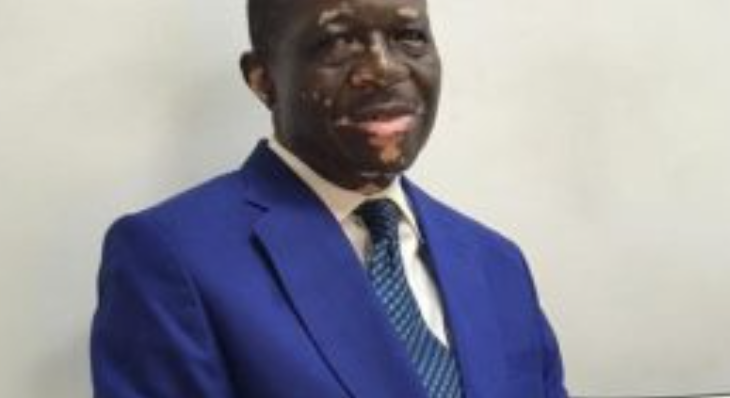We started this journey, appropriately captured – THROWBACK TO THE PAST: THE STORY OF A POLITICAL GODFATHER THAT BECAME A ROBBERY KINGPIN, last week. Chief Samuel Taiwo Oredein – a colossus political gladiator of the First Republic, and one of the Seven people; including Chief Obafemi Awolowo, formed the Action Group [AG] Political Party.
And it was for the role he played politically that he was most honourably referred to as Political Big Boss. The man however elongated his role of leadership beyond the political zone. He later identified himself as a dully qualified Robbery Kingpin.
The Guru concludes this maverick’s lordship story of two different worlds, today. Read and enjoy yourself, without loosing site of the lessons therein, please.
The former Principal Organising Secretary of the Action Group looked blankly at Felix. With a straight face and a deadpan expression, he denied knowing Felix or ever visiting his house. Njovens, Bello and Abidogun also made feeble attempts to deny knowing Felix. Later they started to beg the future IGP – Sunday Adewusi, then Commission of Police for Kwara State, to assist them because it was the devil that used them to collect the money. “Ise asetani ni. Mo fi Anabi ati Jesu Krisiti beyin” That was from Alhaji Amusa Abidogun, the Chief Inspector. He offered to return part of his own share.
Sample of Nigerian One Pound Note, which was introduced in 1968, was then showed to Chief Samuel Taiwo Oredein. The political master strategist then realized that the cards were stacked against him. He checked his sleeve to see whether he had an ace he could use. He found none. It was then he reluctantly admitted that all that Adigun – who was also known as Tafa Igiripa, said was correct. However, the Chief denied that the money was in one-pound denomination as stated by Adigun. Adigun maintained his stand. Finally, Oredein nodded his head that the money was in one-pound denomination. Reverse Side of Nigerian One Pound Note. It was withdrawn in 1973.
It was over the radio that people heard the news. Chief ST Oredein had been arrested and would be arraigned in Court for armed robbery! Armed robbery! It must have been a case of mistaken identity. It could not have been the Chief S. T. Oredein that they knew. Armed robbery! “Ki lo pa alaso funfun ati alaro po? What could have been the connection with the owner of a white cloth and a dyer”, people wondered.
In truth, Chief Oredein was not a poor man by any standard. Everybody knew he was a man of means. “Ohun ti a ko mo ni a ko mo, eni ti o ba ti ri oyun oyinbo ti mo pe omo pupa ni o ma fi bi”. It is a well-known fact that the product of a white woman’s pregnancy would always be fair in complexion.
Between 1942 and 1962, Chief Oredein had erected six buildings. And mind you, we are not talking of “four-bedroom boys’ quarters” in a village! We are talking of real buildings in strategic locations. Four of the houses were at Ibadan. He built one at Oshodi. The sixth building was in a prime area in Ikeja.
What of automobiles? Oredin had a total of nine vehicles, including cars and lorries for both his business and personal use. He was not only sagacious on the political field, he was also productive in the other room. He was blessed with more than 30 children.
Finally, the day of the trial arrived. People had travelled all the way from Lagos, Ibadan and Ogere, to Ilorin to confirm whether it was truly the Chief Oredein that was arrested. To the surprise of many of his supporters and friends, it was the author of the book on political organisation himself that was brought to court.
ST was arraigned alongside the three senior police officers. They were charged with abetting the commission of a robbery and of receiving stolen property as well as offence of harbouring known offenders. In other words, they were charged with receiving 5,000 pounds from the armed robbers to screen them from legal punishment for the offence.
It was a criminal trial like no other. It was a battle of giants. Chief Oredein and Patrick Njovens briefed Chief Rotimi Williams to appear for them. Bello and Abidogun retained the services of Mr. Richard Akinjide. The prosecution was led by the Director of Public Prosecutions for Kwara State, Mr. Anthony Ekundayo. The three senior lawyers proved their mettle.
The trial judge was a relatively young judge, having been appointed to the Bench only two years before the trial. However, what My Lord Justice Moradeyo Adesiyun lacked in age, he made up with uncommon brilliance and exemplary courage.
At the trial, Chief Oredein testified that on the day of the robbery he was at his hometown – Ogere, having left Ibadan around 6.30pm on that day and only came back to Ibadan the following day. He admitted that it was true that Adewusi confronted him on May 26 with Felix Dumeh, but he stated that he denied there and then the allegations of Dumeh. His principal witness was his solicitor who claimed that he was with Chief on April 13, from about 3pm to 11pm. Chief also called an Imam and a farmer as his witnesses. They all testified that he was at Ogere, on the evening of April 13.
The trial was not only being conducted in the courtroom. From Ilorin to Ibadan, From Lagos to Enugu, From Port Harcourt to Ile-Ife, people were also busy conducting their own versions of the trial. Would the young judge be able to convict ST Oredein if he was found guilty? Would Action Group Political Party leaders allow their former colleague to go to prison for robbery?
When His Lordship adjourned the matter to December 28, 1971, for judgment, speculations began afresh. It was said that it was to enable the judge to release the accused before the end of the year. Some said that thanksgiving services had been planned to coincide with the New Year. All Nigerians waited with bated breath for the judgment day.
Finally, the day arrived. It was a Tuesday. It was three days after Christmas and three days before the New Year.
The four accused persons were brought to the Court in a Black Maria. If ST felt any apprehension, it was not apparent. As he was led to the court, Oredein gave the sign of victory to the crowd of spectators who had come from far and near to hear the verdict. It was a good sign. It was a sign of victory. His people became happy.
Hon. Justice Moradeyo Adesiyun began by reviewing the charges against the four of them. His Lordship extensively analysed and appraised the evidence. When His Lordship noted the fact that the accused were not at the scene of the crime, Oredein turned to smile at the people in the courtroom. He would soon be on his way home.
Then came the moment. His Lordship found that though the accused persons were not physically present at the scene of the armed robbery, they had prior knowledge of the robbery before it took place, and that the three of them who were police officers did nothing to prevent the robbery. His Lordship also found that they all received proceeds of the robbery.
Justice Adesiyun therefore concluded that the accused persons were guilty of the charges against them.
Chief Oredein could not believe his ears. Guilty as charged? Did that pronouncement mean that he was not going to be free?
His native cap which he had been holding, in deference to the authority of the court, clattered to the floor with a thud. The High Chief from Ogere Remo stood still as if he was Opa Oranmiyan in Ile-Ife. It was Yesufu Bello who was standing beside him that nudged him back to reality. “Chief, ‘they’ are asking if you have anything to say.”
Oredein had not prepared any allocutus. He had not expected to be convicted. Ko si eni ti o gbe oju fifo le adiye ori aba. Who could have imagined that a mother hen would fly off from her hatchery? You don’t know allocutus? It is another Latin word they taught us in Law School. It is a statement made by a defendant who has been found guilty before he is sentenced. It is like ‘A beg, tamper justice with mercy’ that a Lagos bus driver would tell you after breaking the side mirror of your Range Rover.
Allocutus or no allocutus, something must be said. The court had only convicted; His Lordship had not yet pronounced their sentences. Perhaps something could still be done. His eyes scanned the crowded courtroom. It appeared he was looking for someone or something. Whatever he was looking for was not in the court. He turned back to His Lordship.
Oredein pleaded for leniency. In a very moving voice, he informed the court of his past travails: “First it was the treasonable felony and conspiracy trial, but I was acquitted at the Supreme Court. Second, the Aberenla murder trial came, and I was in custody for 11 months before I was freed at Ijebu-Ode High Court. I humbly plead for Your Lordship’s forgiveness.”
Of course, you know the treasonable felony trial the Chief referred to. The Aberenla trial he mentioned was the case over the murder of Ogunkoya Aberenla, who was the Leader of Ogere Remo’s branch of Nigerian National Democratic Party of Chief Ladoke Akintola (not to be confused with the party of the same name established by Herbert Macaulay, in 1922). Aberenla’s body was never found.
Justice Adesiyun looked at the accused persons. “If you had any conscience, you should drop your heads in shame.” His Lordship observed that they were lucky not to have been caught by the amendment to the Robbery and Firearms Decree which provided death by public execution for convicted armed robbers and those found to have aided and abetted armed robbery.
His Lordship therefore sentenced each of them to life imprisonment. There was no Federal Court of Appeal in those days. It was only Western State that had a Court of Appeal and Kwara was not part of Western State.
The four of them ran all the way to the Supreme Court.
On May 3, 1973, the Supreme Court delivered its judgment. My Lord Justice Coker who delivered the judgment of the apex court dismissed the appeal of all the convicted persons and affirmed the life sentences imposed on them by the trial court.
Chief Federick Rotimi Alade – popularly known as Rotimi the Law, later became a Senior Advocate of Nigeria.
Osuolale Abimbola Richard Adinjide later became a traditional Chief, in Ibadan, a Senior Advocate of Nigeria, and Nigerian Minister of Justice and Attorney General, during the Second Republic, under the presidency of Alhaji Aliyu Shehu Shagari.
Mr. Anthony Ekundayo, then Director of Public Prosecution [DPP] was elevated to the Bench as a Justice of the High Court of Kwara State. The trial Judge,
Justice Moradeyo Adesiyun, then trial judge, was also elevated. His Lordship served as the Chief Judge of Benue State from 1976 until his retirement in 1985.
History Does Not Forget!
Historian is not a judge!
History is!
Godwin Etakibuebu; a Veteran Journalist, wrote from Lagos.
Contact:
Website: www.godwintheguru.org
You Tube Channel: Godwin The Guru
Twitter: @godwin_buebu
LinkedIn: linkedin.com/in/godwintheguru
Facebook: Godwin Etakibuebu
Facebook Page: Veteran Column
Telegram: @friendsoftheguru
WhatsApp: @friendsoftheguru
Phone: +234-906-887-0014 – short messages only.
You can also listen to this author [Godwin Etakibuebu] every Monday; 9:30 – 11am on Lagos Talk 91.3 FM live, in a weekly review of topical issues, presented by The News Guru [TNG].

